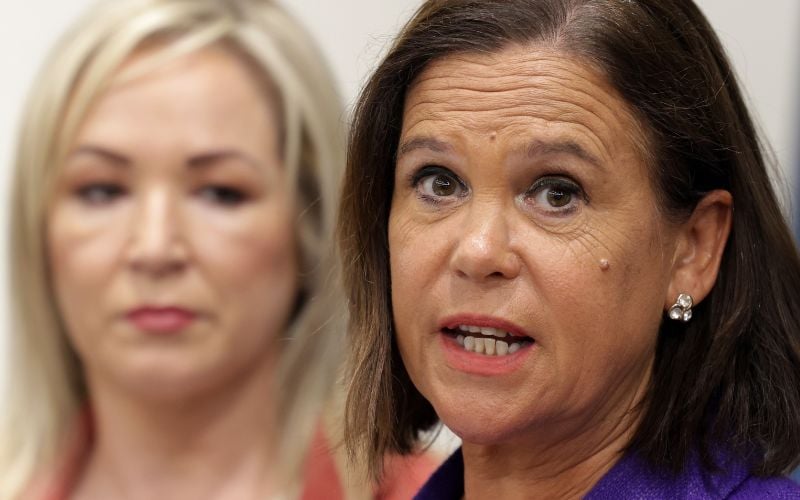In March 2016, the Irish Censorship of Publications Board took measures to ban its first book in 18 years, titled "The Raped Little Runaway," by Jean Martin.
As recently as 2012, as an in-depth article by Christine Bohan of the Journal.ie noted, there were still a whopping 274 books and magazines banned in Ireland.
That 18 years progressed since Ireland had previously banned a publication ("The Base Guide to London," by Base Shoes) is a testament to how much Ireland's censorship standards and practices have changed since the days when books like Enda O'Brien's "The Country Girls" were blacklisted.
What got books and magazines banned in Ireland back in the day? Sex and abortions, apparently.
To give you some idea of how strict censorship was, the word “pregnant” did not appear in print until 1960. Until then it always printed as “she is expecting a happy event.”
The Irish Censorship of Publications Board is traditionally made up of five people appointed by the Minister for Justice. Books may be banned for either being indecent or obscene or for advocating having an abortion.
As the Journal.ie article pointed out, there are eight books on the topic of abortion which are still banned. These include “Abortion Internationally,” “Abortion: Our Struggle for Control,” and “Abortion: Right or Wrong.”
These three are explicitly about abortion while four other still-banned books are sex guides, including “How to Drive Your Man Wild in Bed” and “The Complete Guide to Sex," which also contain information regarding abortions.
In 1992, Ireland held a referendum, making it legal for information about abortion to be made available, but the above-mentioned books remained banned since they were published prior to the referendum.
Magazines have been barred from sale in Ireland by the censor of a wider range of 'infractions.' Currently, there are 266 magazines marked as off-limits. Some, as you might expect, are hardcore porn and crime magazines, but some of the surprises, as the Journal.ie noted, including Broadway and Hollywood Movies and Health and Efficiency.
One publication that relatively recently won its place on Ireland’s newsstands was Playboy, which was unbanned in January 1996 and went on to become Ireland’s highest-selling men’s magazine.
At the time the Censorship of Publications Board said, “Morals have changed. What was considered obscene in the 1940s is very different to what is considered obscene today.”
You can see a full list of all those publications remaining on the censor’s list here.
While Ireland's censorship standards have become exponentially more lenient, Ireland is among the 22% of the world's countries to retain blasphemy laws. What's more, Ireland only introduced its blasphemy law in 2009.
Under Ireland’s law “the publication or utterance of blasphemous matter" could see you strapped with a fine of up to $29,000 (€25,000.)

Looking for Irish book recommendations or to meet with others who share your love for Irish literature? Join IrishCentral’s Book Club on Facebook and enjoy our book-loving community.
Books and magazines were not the only contentious materials. Previously, we’ve looked at how movies such as Stanley Kubrick’s “Clockwork Orange” and the Monty Python’s “Life of Brian,” were banned due to depictions of violence and religious references. These are now back in public circulation, but it is surprising the number of books (in large part related to sex and the carrying out abortions) and magazines remain censored.
Censorship was especially common during the four decades following Ireland’s Independence in 1922 as Ireland’s film and book censors used their powers to enforce the draconian moral code of the time.
In 1923 James Montgomery, the first Irish Free State censor, said, “I know nothing about films, but I know the 10 commandments!” And so it began.
Between 1923 and 1940, 2,500 films were banned and 11,000 films cut, including “Casablanca,” “Gone with the Wind” and many other fine films.
Oliver Flanagan TD and briefly Minister for Defence once said, “There was no sex in Ireland before television.”
*Originally published in 2016, updated in Jan 2023.




Comments